[Editor’s note: Last year, Alana Friend Lettner wrote a popular piece for The Tyee called ‘Don’t Thank Me for Being a Tree Planter.’ This year, in a series of three dispatches from the cutblock, she’ll tackle how the industry’s changes and challenges are looking on the ground. Read the first instalment.]
Several weeks ago, early into my seventh tree planting season, I learned from my family that my grandmother was dying. I read the email from my mother in the morning just before leaving for work. I got into a work truck, went to the block and started planting. But during my first bag-up, it was clear that I was in no state to work.
When my crew boss came into my piece to check my trees a few hours later, I told her about what was happening. The first thing she said was that I didn’t need to work if I didn’t want to; our block was just a seven-minute drive from camp and she could arrange to have me picked up.
So that’s what I did. At noon, I headed back to camp and called my family. When my grandmother passed away a few days later, I worked through one shift and halfway through the next before the loss really hit me. My crew boss, checker and supervisor — all women, all friends — were encouraging. Take the day, they said.
But even with all this support from management, I still found it difficult to let myself stop working. Part of this stems from the nature of seasonal work. The planting season in interior B.C. is four months long at most, but I usually plant just for May and June — so each workday really counts.
But I also find it difficult to take days off because of the long-lasting impacts of some of my early experiences as a planter. My first season was in an openly competitive work environment in which high production was glorified. Talking about how many trees you planted a day was pervasive, and injuries were often derided. It was not uncommon for management to joke about “pretendonitis,” as if planters were routinely faking tendonitis, the most common planting injury, in order to stay home from work.
One day, I walked into the mess tent and discovered that someone in management had posted the ranking of all the planters in camp, from most trees planted to least. As I recall, the reasoning for this was that management was displeased by the camp’s production and they wanted to goad planters into planting more trees. Having suffered an injury that required me to take several days off, and being a rookie planter to begin with, my name was low on the list.
Almost 10 years later, I still remember the moment vividly. I was humiliated.
Bianca Boudreau, who has worked in silviculture for 14 years — tree planting, brushing, checking and doing first aid — remembers this happening in her camp, too. It made her furious. Each time the rankings were posted, she tore the paper down.
“There was so much power tripping,” Boudreau said of a previous company she worked at. There was an entrenched hierarchy in camp. Planters were made to feel that they were at the bottom.
And who was at the top?
“It was always men,” Boudreau told me. “Management was always male-dominated.”
I’ve heard this observation reflected again and again by women and non-binary silviculture workers. This was my experience, too. In my first season, all the management positions were filled by men with the exception of one female driver and two cooks. There were no women in leadership roles to look up to or to approach with questions or concerns about the job or about life in camp.
It would have been unimaginable for me to go to my crew boss, let alone the supervisor, for personal reasons as I did this season when my grandmother died.
The context was significantly different: I was much younger in my rookie season and less likely to advocate for myself. I also hadn’t formed friendships with anyone in management the way that I have now.
Planters shouldn’t have to be friends with their crew bosses or supervisors in order to feel comfortable approaching them to take days off, nor should they have to be a high-production planter in order to feel respected by them.
“You want someone to feel welcome, not... made to feel that they’re small because you think that’s somehow going to make them a good employee,” Mariah Curry, an assistant supervisor, told me. “When has bullying people ever made them do good work?”
Hayley Kaskens, an eight-year veteran planter, says that it often comes down to how upper management behaves, especially to newer planters who are unfamiliar with the industry.
“I think people often just model what they’ve experienced, and if they have not experienced care or compassion themselves, it’s harder to model it for others,” Kaskens told me.
Many people I spoke with said they felt isolated and unsupported by male-dominated management in various situations during their earlier years of tree planting.
For instance, when Boudreau was given a crew at 22, she was the only female crew boss in her camp.
“There was just nobody to confide in,” she said.
I asked her how it felt to be in the management trailer — where the crew bosses and supervisor meet at the end of each workday to crunch numbers and lay out plans — as a young woman surrounded by older men.
She described a “culture of men getting to be boys, ‘boys being boys,’” without much oversight or consequences. “I felt very intimidated.” She was afraid of making mistakes or asking for help. If you got something wrong, she said, you were often made fun of and belittled.
At the company where Boudreau, Kaskens, Curry and I now work, nearly half of the crew bosses are women or non-binary people, and two of the three supervisors are women. Many of them are queer.
Working closely with a female supervisor, Boudreau said that now she “never hesitates” to ask questions or voice concerns. “I feel comfortable always.”
Centring “soft skills” such as communication and compassion — skills that women often excel at — can make a workplace not only more pleasant, but also more effective. In a 2010 study, researchers found a strong correlation between a group’s “collective intelligence” — the ability to successfully collaborate on a range of problem-solving tasks — and the proportion of women in the group. The notion that a competitive work environment is the best way to achieve productivity isn’t borne out by the research.
For Curry, who uses they/them pronouns, the presence of more women and queer people in management “creates a really robust and full experience” of what tree planting is that isn’t focused solely on production. “Numbers talk” is explicitly discouraged — a rarity in a planting camp. You often don’t even know who the highballers are, Curry said. Instead, planters are valued for how they interact with others and how they contribute to the community in camp.
“In the best ways, it feels like it creates a lot more care,” they told me.
But there is still opportunity for growth. Overall, Curry said, the industry is still quite patriarchal, and it “equates masculinity with hard work and production.”
There is also a need for more critical dialogue about intersectionality, how whiteness has — and continues to — impact tree planting culture, and what that means for people of colour working in remote bush camps.
Change is slow, Curry said.
Boudreau agreed. “I’m so grateful to be at a company I feel safe at,” she said. “But shouldn’t everybody feel safe?” ![]()
Read more: Rights + Justice, Labour + Industry, Gender + Sexuality





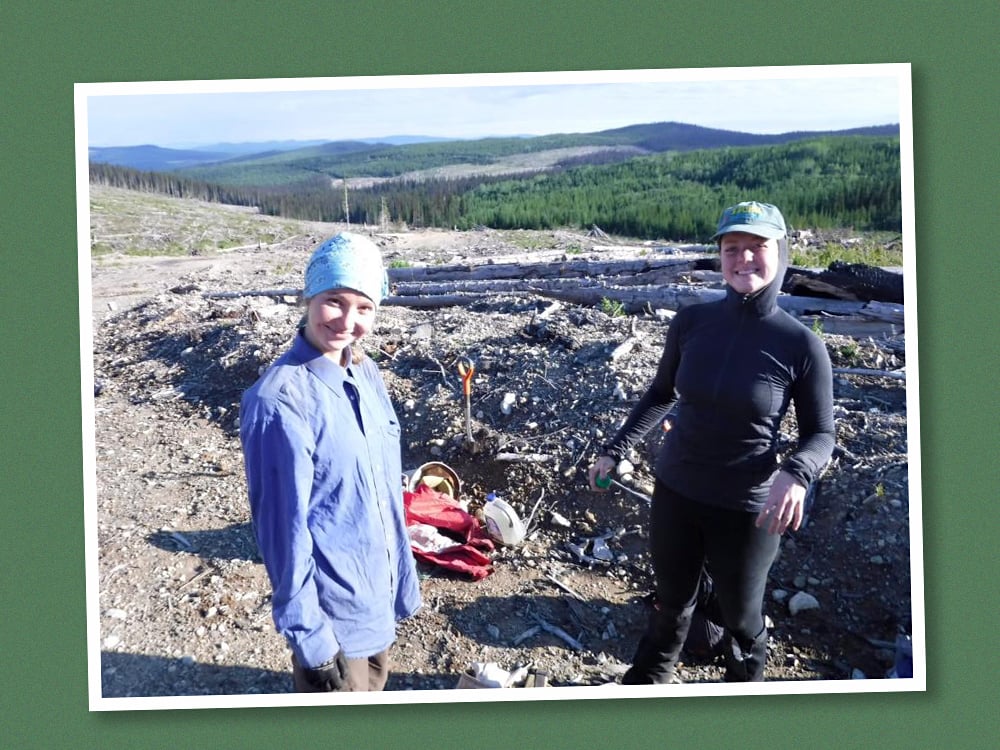
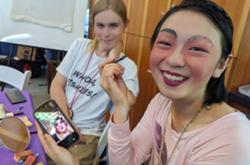
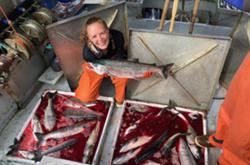

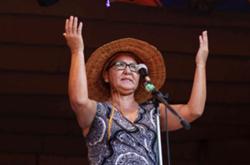
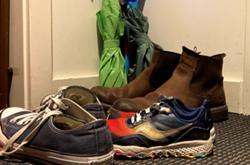


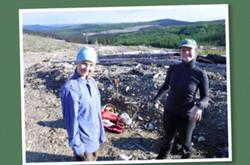




Tyee Commenting Guidelines
Comments that violate guidelines risk being deleted, and violations may result in a temporary or permanent user ban. Maintain the spirit of good conversation to stay in the discussion and be patient with moderators. Comments are reviewed regularly but not in real time.
Do:
Do not: